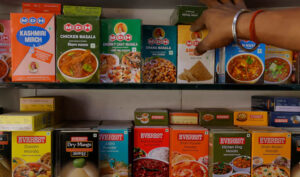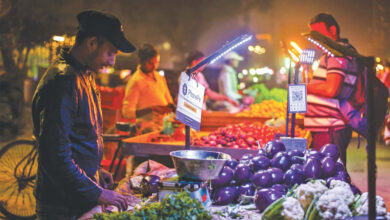Nepal bans widely used Indian spice brands Everest and MDH

By Krishana Prasain
Kathmandu: Nepal’s food safety agency has banned the sales and imports of popular Indian spice brands MDH and Everest with an immediate effect, based on the findings from several countries that they contain ethylene oxide, a cancer-causing chemical.
The quality watchdog has also decided to recall and seize products currently in the customs clearance process.
The move follows bans by several countries, including Singapore, Hong Kong, and the Maldives, and scrutiny by the Australian authorities.
“We decided to ban the spices of the two Indian companies with immediate effect based on scientific evidence from several other countries showing high levels of carcinogenic pesticide ethylene oxide in many spice mixes. This poses a cancer risk,” said Matina Joshi Vaidhya, director general of the Department of Food Technology and Quality Control.
“We will allow their sale, imports and distribution once we get clearance from the manufacturing country that they are safe to consume.”
Experts say the presence of ethylene oxide, which is a flammable colourless gas with a sweet odour, in the spices, is concerning, as varieties of the products of both companies are easily available in Nepal and are popular too.
Ethylene oxide is primarily used to produce other chemicals, including antifreeze. In smaller amounts, it is also used as a pesticide and sterilising agent.
Lymphoma and leukaemia are the cancers most frequently associated with occupational exposure to ethylene oxide. Stomach and breast cancers may also be linked to ethylene oxide exposure.
Vaidhya said countries have their own acceptable limits for pesticide use. If products are found to exceed the limits set by the department, the department will direct relevant authorities to recall them from the market.
The department accordingly issued a circular to agencies on Friday to recall the spices from the market. The quality watchdog has also directed the National Food and Feed Reference Laboratory to prioritise testing for ethylene oxide.
Ganesh Agrawal, an official of Jay Ganapati Enterprises in Biratnagar, the distributor of Fish Curry Masala manufactured by Everest Food Products Pvt Limited, told the Post that they knew about the issue through news reports and had planned to stop selling the product.
“The sales, however, are not significant.”
Earlier this month, Hong Kong and Singapore banned the sale of MDH and Everest spice brands, citing the detection of carcinogenic pesticide ethylene oxide in several spice mixes.
India is the world’s largest spice producer, consumer and exporter. Zion Market Research estimates India’s domestic spice market to be worth $10.44 billion in 2022, and the Spices Board said India exported products worth $4 billion during 2022-23.
According to the Department of Customs, Nepal imported 946.42 tonnes of various Everest brand spices from India and other countries, amounting to Rs120 million, in the last fiscal year ending mid-July 2023. Spice imports from India alone amounted to 478 tonnes worth Rs74.65 million.
Similarly, the imports of the MDH brand spice amounted to 1,143.76 tonnes worth Rs637.21 million.
From India alone, Nepal imported 1,141.96 tonnes of spice worth Rs635 million.
Consumer rights activists say that authorities must take urgent action as the issue is related to public health.
“As the products that were found to be hazardous to public health in Hong Kong and Singapore are widely available in Nepal too, it would be irresponsible to wait for a test report to prohibit their use,” Jyoti Baniya, chairman of the Forum for Protection of Consumer Rights, told the Post in a recent interview.
“It will be too late to wait for the report—we should not forget that this is directly linked to public health.”
The quality watchdog said they have started inspecting the department stores and groceries to remove the banned spice.




